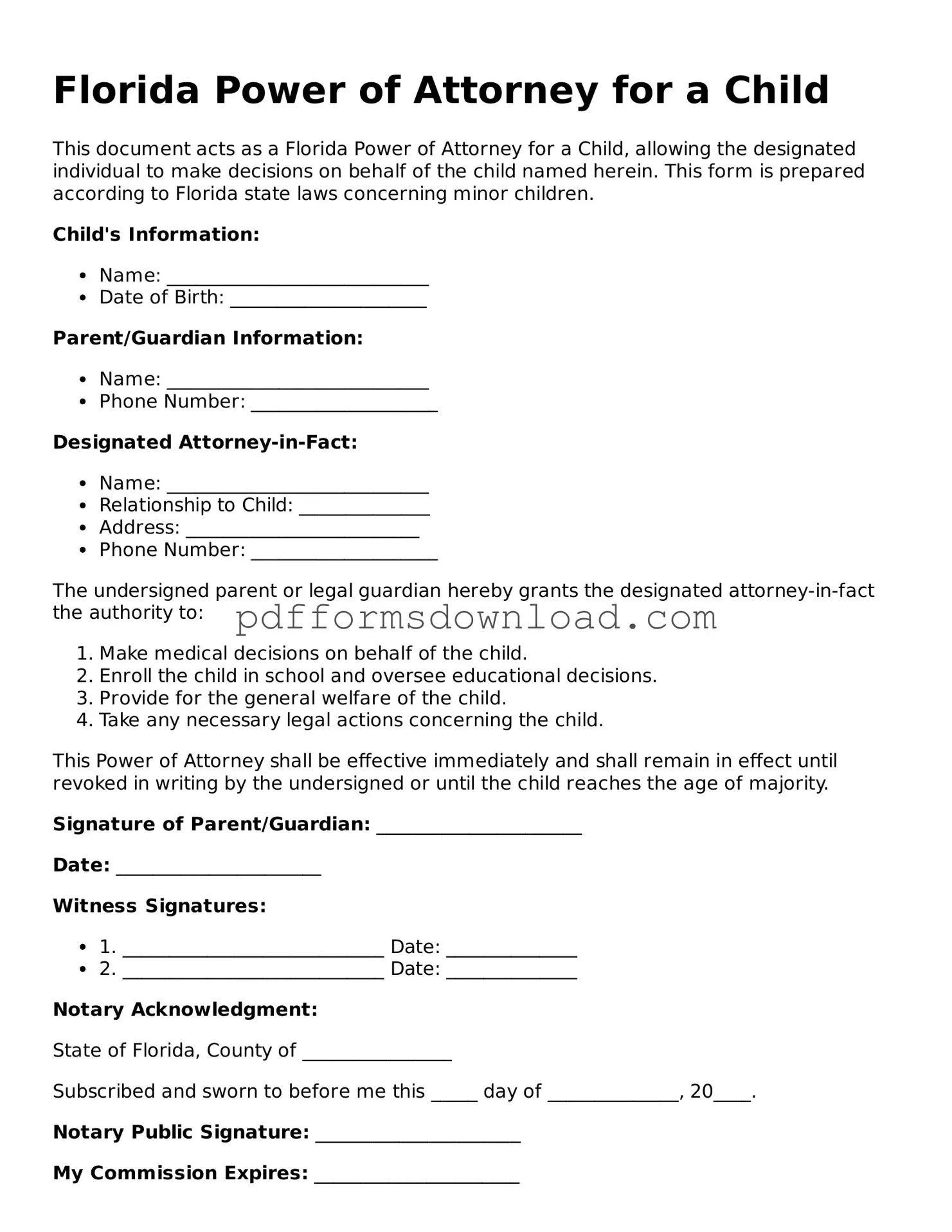What is a Florida Power of Attorney for a Child form?
The Florida Power of Attorney for a Child form is a legal document that allows a parent or legal guardian to designate another individual to make decisions on behalf of their child. This can include decisions related to education, health care, and general welfare. It is particularly useful when the parent or guardian is unavailable, such as during travel or extended work commitments.
Who can be designated as an agent in the Power of Attorney for a Child?
Any responsible adult can be designated as an agent in the Power of Attorney for a Child. This can include family members, friends, or trusted individuals. However, it is important to choose someone who is reliable and capable of making decisions in the best interest of the child.
Is the Power of Attorney for a Child form valid in all situations?
While the Power of Attorney for a Child form is valid for many situations, it does not grant the agent the authority to make decisions regarding certain legal matters, such as adoption or termination of parental rights. Additionally, it is advisable to check with local laws, as some situations may require additional documentation or specific procedures.
How long does the Power of Attorney for a Child remain in effect?
The Power of Attorney for a Child typically remains in effect until the specified end date outlined in the document, or until the parent or guardian revokes it. It is important to clearly state the duration of the authority granted to avoid any confusion. If no end date is provided, the authority may remain in effect until the child reaches the age of majority, which is 18 years old in Florida.
Do I need to have the Power of Attorney for a Child form notarized?
Yes, the Power of Attorney for a Child form must be signed in the presence of a notary public to be legally binding. Notarization helps to verify the identities of the individuals involved and ensures that the document is executed properly. It is also a good practice to have witnesses sign the document, although this may not be required.
Can the Power of Attorney for a Child be revoked?
Yes, the Power of Attorney for a Child can be revoked at any time by the parent or legal guardian. To do so, a written notice of revocation should be provided to the designated agent and, if possible, to any institutions or individuals who were informed of the original Power of Attorney. It is advisable to keep a copy of the revocation for your records.
What should I do if I have more questions about the Power of Attorney for a Child?
If you have further questions about the Power of Attorney for a Child, consider consulting a legal professional who specializes in family law. They can provide personalized guidance based on your specific situation and help ensure that the document meets all legal requirements. Additionally, local legal aid organizations may offer resources and support for families in need.

